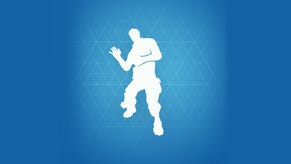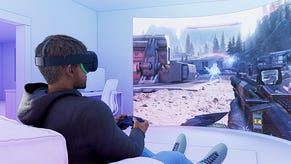Activision: games are relationships, "brands in people's lives"
Have more in common with sport than film.
Games are relationships, Call of Duty publisher Activision has said.
The way we interact with video games has changed profoundly over recent years, Activision Publishing boss Eric Hirshberg told VentureBeat.
"Games are different, because they're not disposable, they're not one-time," he said. "They really are relationships. The way you interact with a game has much more in common with the way you interact with a sport that you love, or a hobby that you love, that's on-going and long-lasting, than with how you watch a movie, which you do for two hours and then you move on.
"So I think all we're trying to do is look at that behaviour and change the way we talk to people about games."
Activision has tried to foster this relationship with its customers through Call of Duty Elite and Call of Duty XP - both extensions of the biggest brand in gaming: Call of Duty.
Elite, which launched alongside Modern Warfare 3 last year, is an online extension of the main Call of Duty experience, offering tutorial videos, stat tracking and, for those who pay a premium, early access to downloadable content at a reduced price.
XP is a gargantuan Call of Duty convention that attracts thousands of gamers and high-profile celebrities. It's home to tournaments, announcements and all sorts of shenanigans.
"Both Call of Duty Elite and Call of Duty XP, if looked at through a certain lens, are sort of experiments with how willing people are to enter into a real relationship with a game that they like," Hirshberg continued.
"To think of it differently than something you buy once a year, to think of it more as something you do all year round. Or do, in the case of XP, as a sort of lifestyle piece of entertainment.
"So I think that both of them show a greater potential than people might assume that games have, to become those kinds of brands in people's lives."
Hirshberg described this move to games as brands as a "shift in mindset".
"People don't have any problem thinking about products in other sectors this way," he said. "I don't think anyone would say that when you buy an Apple product, you're just buying a piece of consumer electronics. You're also buying a little bit of the Apple belief system, an emblem of your creativity, your design aesthetic. Same with Nike shoes or different soft drinks or beers.
"There are all kinds of brands that have meaning beyond the product in other categories. That hasn't been historically true of games, but I think it can be, and some of the work we've done on Call of Duty and some of the approaches we took on Skylanders show that."



.png?width=291&height=164&fit=crop&quality=80&format=jpg&auto=webp)





